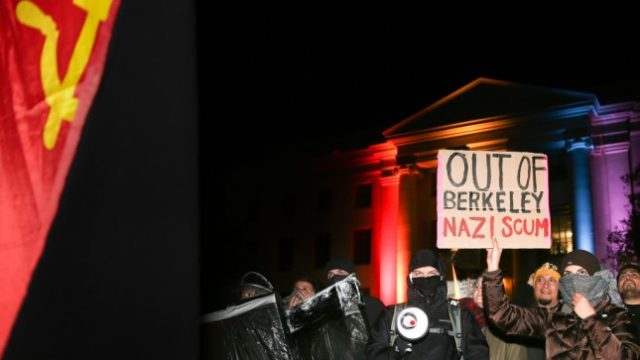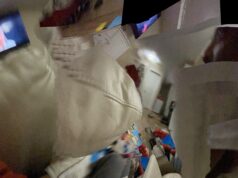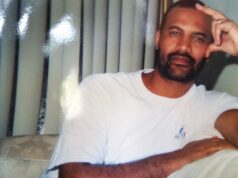Prof. Al Mariam
The People’s Republic of Berkeley, with its capital at UC Berkeley, was once ground zero in the battle to save the soul of free speech in America. That was over one-half century ago. But today, some view UC Berkeley as a bastion of reactionary political correctness.
Recently, Ann Coulter, the enfant terrible of the conservative movement, “canceled” her speaking engagement at UC Berkeley, bewailing free speech had been “crushed by thugs.” She inveighed against the university for its namby-pamby vacillation. She also blasted her conservative student sponsors for ditching her and “joining the other team.” Some prominent liberals voiced support for Coulter.
Berkeley Chancellor Nicholas Dirks explained Coulter was never persona non grata on campus but “our police force does not believe (the event) venue to be protectable,” adding “a speaker’s presence on campus” in February “ignited violent conflict and significant damage to campus property.” He fingered unnamed “groups and individuals from the extreme ends of the political spectrum” for the controversy. He hectored, “This is a university, not a battlefield.”
In 1964, Mario Savio, Jack Weinberg and others defiantly mobilized Berkeley students in the cause of campus activism, free speech and academic freedom. They were joined by a thousand strong faculty, making Berkeley a national symbol of campus free speech and protest. By contrast, the stony silence of Berkeley’s faculty majority in 2017 is deafening. In addition to stopping Coulter’s speech, the vocal minority who is speaking up also demanded conservative gadfly Milo Yiannopoulos be banned from campus in January. In the case of Yiannopoulos, the opposition became violent.
The People’s Republic of Berkeley, with its capital at UC Berkeley, was once ground zero in the battle to save the soul of free speech in America. That was over one-half century ago. But today, some view UC Berkeley as a bastion of reactionary political correctness.
Recently, Ann Coulter, the enfant terrible of the conservative movement, “canceled” her speaking engagement at UC Berkeley, bewailing free speech had been “crushed by thugs.” She inveighed against the university for its namby-pamby vacillation. She also blasted her conservative student sponsors for ditching her and “joining the other team.” Some prominent liberals voiced support for Coulter.
Berkeley Chancellor Nicholas Dirks explained Coulter was never persona non grata on campus but “our police force does not believe (the event) venue to be protectable,” adding “a speaker’s presence on campus” in February “ignited violent conflict and significant damage to campus property.” He fingered unnamed “groups and individuals from the extreme ends of the political spectrum” for the controversy. He hectored, “This is a university, not a battlefield.”
In 1964, Mario Savio, Jack Weinberg and others defiantly mobilized Berkeley students in the cause of campus activism, free speech and academic freedom. They were joined by a thousand strong faculty, making Berkeley a national symbol of campus free speech and protest. By contrast, the stony silence of Berkeley’s faculty majority in 2017 is deafening. In addition to stopping Coulter’s speech, the vocal minority who is speaking up also demanded conservative gadfly Milo Yiannopoulos be banned from campus in January. In the case of Yiannopoulos, the opposition became violent.
Free speech is clearly in the crosshairs, not only from the ivory towers but also from the White House. Trump is still working to fulfill his pledge of building a casino on the ashes of free speech by “opening up our libel laws so we can sue” the press and “win lots of money.” I wonder if he reviewed the scrapped Sedition Act of 1798.
Dirks’ battle cry that his university is not a “battlefield” disingenuously suggests universities are mere sanctuaries of unperturbed learning far from the madding crowd of exasperating extremists. He cravenly flees his university’s storied past as the battleground for free speech and the anti-war movement by indicting shadowy “extremists.” In the ivory tower battlefield, “every idea is an incitement” and “eloquence often sets fire to reason.” Dirks forgets that as he points an accusatory finger at “extremists,” three fingers are pointing at him.
Dirks hides behind a contrived Hobson’s choice of security or liberty. The greatest danger to liberty comes not only from the zealots who set fire to reason but also from the craven government firefighters who prefer to stand back and indifferently watch the fire burn itself out.
Censorship is not a panacea for offensive speech. Its practice testifies to a closed mind, lack of self-confidence and a deep-seated fear of being challenged. The only effective way to fight extremist views is with moderate ones steeped in reasoned elaboration.
Universities should be battlefields of ideas where open-minded students, armed with reason and facts can joust and prepare themselves for the real world of offensive, outrageous and distasteful ideas. Suffering the slings and arrows of outrageous ideas is but a small price to pay for living in a free society.
The founders of the American republic understood the supreme value of free expression and wholly rejected censorship proclaiming in sweeping language for the ages, “Congress Shall Make No Law … Abridging the Freedom of Speech” because “they put their faith, for better or for worse, in the enlightened choice of the people.” They sought to ensure “coarse expression as well as refined, and vulgarity no less than elegance” are equally protected.
Their vision today is writ large for all humanity in the Universal Declaration of Human Rights which proclaims, “Everyone has the right to freedom of opinion and expression, to hold opinions without interference and to seek, receive and impart information and ideas through any media and regardless of frontiers.”

























